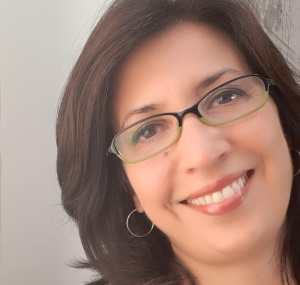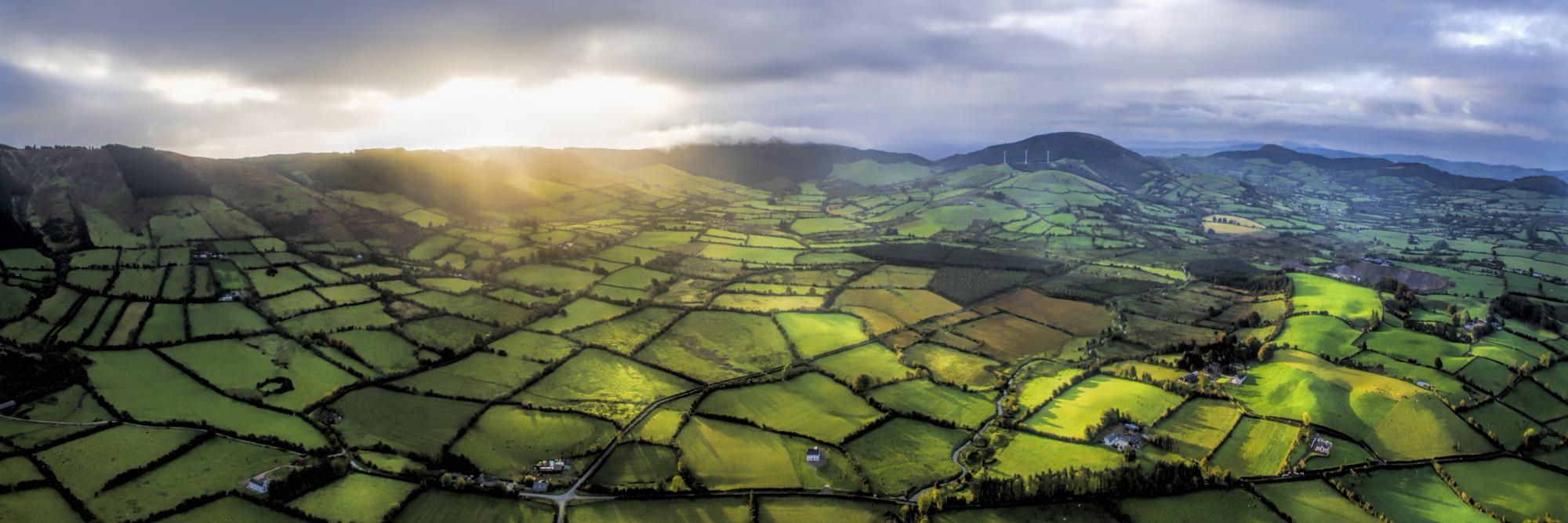Alejandra Cerda is a Spanish teacher and translator (English to Spanish) from Chile. With a strong educational background and a tonne of experience, Alejandra runs a business, By The Way Languages, helping students from all backgrounds learn and improve their Spanish. You can follow her on Instagram and check out her profile on LinkedIn.
About Alejandra
Q: Where are you originally from?
A: From Santiago, Chile.
Q: Where are you currently living?
A: In Dublin, Ireland.
Q: When did you move here?
A: I moved to Ireland in 2008, so it'll be 12 years in July.
Q: Is this your first expat experience?
A: No, I also lived in Spain before Ireland.
Q: Did you move here alone or with a spouse/family?
A: At first, on my own – my sister joined me later.
Q: Why did you move; what do you do?
A: I wanted to learn English and improve my work situation.
Living in Dublin
Q: What do you enjoy most about Dublin? How would you rate the quality of life compared to your home country?
A: People are kind and polite. Dublin is safe and very convenient for shopping. It’s not too big, and that helps you get around easily.
I don’t want to skip the fact that Ireland is a beautiful island. There are many places to discover throughout the country. It is said that there are 40 varieties of green, and I can confirm that; it is beautiful.
Q: Any negative experiences? What do you miss most about home in Chile?
A: Well, when you start a new life in another country, you may have some negative experiences. I think the only bad experience I had was in one of my first jobs. My boss didn’t treat me well because I didn’t speak English fluently, and he didn’t want to pay for the extra hours I worked. Eventually, when I improved my English, I moved to another job. What I miss most about home are the food and my family.
Q: What are the biggest adjustments you had to make when settling into expat life here? Did you experience any particular elements of culture shock?
A: Things are done differently. People are different; the food is different, and schedules are different. Your mentality is something important to consider, too, and it takes time to make all those adjustments in your mind. The sooner you learn, the better. I didn’t find anything particularly difficult in Ireland except the language. The English I learnt before I moved here was based on books, and spoken English in Ireland was extremely difficult to grasp because of the accent. A different language is a different way of thinking, too.
Q: What’s the cost of living compared to Chile? Is there anything particularly expensive or particularly cheap in Ireland?
A: Interestingly, the cost of living in some areas is cheaper than in my own country. Even though fruits and vegetables are cheaper than here, they are seasonal, so you can’t always enjoy all of them. Housing is a bit cheaper, but it depends on the quality of the houses. Most of them don’t have central heating, for example.
Q: How would you rate the public transport in Dublin? What is your most memorable experience of using Dublin’s transport system?
A: In general people are not happy with public transport because the buses don’t come according to their schedule. Sometimes, two or even three buses come at the same time, or they don’t come at all. Of course, buses are not the only way to commute. Cycling is another common mode of transport that’s quite popular.
Q: How would you rate the healthcare in Dublin? Have you had any particularly good/bad experiences with regard to doctors and hospitals? Are there any hospitals you would recommend?
A: My experience regarding healthcare is positive. I have had some problems with my health in the past, and the care has been excellent. I can’t complain about the public health system in Ireland. In my view, the main difference between the two healthcare systems is the waiting time to have an appointment.
Q: What are the biggest safety issues facing expats living in Dublin or Ireland? Are there any areas expats should avoid?
A: Dublin is a cosmopolitan city, and you can find expats anywhere. However, people are a bit reluctant to live on the north side of the city. I live in the south part of Dublin, and I can say that it is safe but more expensive.
Q: How do you rate the standard of housing in Dublin? What different options are available for expats?
A: Housing is a real problem in Ireland, especially in Dublin. The rent has increased rapidly in the past two years, and it is almost impossible to pay for a place to live on your own. Most people share a house or flat. There are even locals who are homeless. It is definitely something to consider when someone wants to move here.
Q: Any areas or suburbs you’d recommend for expats to live in?
A: The areas of the city are divided into numbers. Blanchardstown in Dublin 15 is a residential area that is accessible in price. Other good areas are Rathfarnham, Dublin 16; Rathmines, Dublin 6; Ranelagh, Dublin 6; Inchicore, Dublin 8, and some areas of the city centre, and Dublin 1 and 2. In general, the suburbs are cheaper.
Meeting people and making friends
Q: How tolerant are the locals of foreigners? Is there obvious discrimination against any particular group? Have you ever experienced discrimination in Dublin?
A: Irish people are friendly and welcoming. I haven’t seen this in another city. Maybe that’s why I am still living here. Dublin is enchanting. I haven’t experienced any kind of discrimination, and I haven’t seen anything like that.
Q: Was meeting people and making friends easy? How did you go about meeting new people?
A: Well, I had some friends living here already, so it wasn’t so difficult for me, but it’s still quite easy to make friends because many expats share a lot in common.
Q: Have you made friends with locals, or do you mix mainly with other expats? What advice would you give to new expats looking to make friends with the locals?
A: Yes, I have friends from everywhere, and I hang out with locals, too.
There are many activities and places where you can meet people and make friends: pubs, gyms, sports clubs and places where you learn languages or go dancing, as well as religious places or even charities.
Working in Dublin
Q: Was getting a work permit or visa a relatively easy process? Did you tackle the visa process yourself, or did you enlist the services of an immigration consultant?
A: It was easy for me because I have Spanish citizenship, and it is part of the EU.
Q: What is the economic climate in Dublin like? Do you have any tips for expats looking to find a job? Which resources did you find most useful?
A: We are experiencing an uncertain situation right now because of COVID-19, but there are opportunities for expats. Many companies use Ireland as the central base for Europe and manage their branches in other European countries.
Citizens Information is a good place to get informed about employment opportunities and rights. It is free of charge, and they can provide useful information. You might find any answer online, but one can visit their offices and ask for help. Other useful websites and resources are Solas (which provides training and courses), JobsIreland, Recruit Island, Simply Hired, and IrishJobs.
Q: How does the work culture differ from Chile? Do you have any tips for expats doing business in Dublin or Ireland? Have you had any particularly difficult experiences adapting to local business culture?
A: One of the first things I noticed is that people are more relaxed, and the pace of life is a bit slower. This includes a lot of bureaucracy, such as sometimes when showing documents to receive a service, but after having sent them, the documents can’t be found, and one must start with the process all over again. It is always good to double-check with someone else.
Family and children
Q: What are your favourite family attractions and activities in Dublin?
A: Cinemas, pubs, gyms, restaurants of all kinds, shopping centres and parks to do sports.
Final thoughts
Q: Is there any advice you would like to offer new expat arrivals to Dublin or Ireland?
A: Well, consider how the weather will affect your life. Ireland is well known for bad weather, and this is a major issue. Even Irish people hate it. It rains most of the time, and one must continue with one's normal life. Usually, the day is grey, the sun is hidden, and it can be overwhelming. Most expats are continuously travelling abroad, looking for a bit of warmer weather. We get vitamin D from the sun, and the lack of it can cause health issues. Additionally, the temperature (and this is more relevant, in my opinion) can fluctuate throughout the day, meaning your body must continuously adjust.
►Interviewed May 2020



